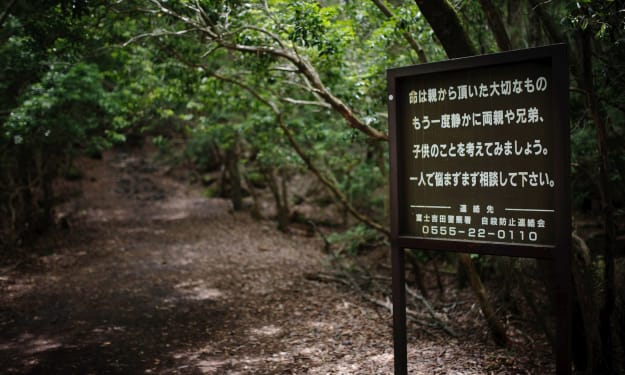The Fear of Ghosts: Unraveling the Haunting Phenomenon
The Unexplained

Introduction
The fear of ghosts, also known as spectrophobia, is a haunting aspect of human psychology that has endured throughout history. The belief in ghosts, spirits, and supernatural entities transcends cultural boundaries and has been an integral part of folklore, religion, and mythologies worldwide. In this comprehensive article, we will delve into the psychology behind the fear of ghosts, the cultural and historical aspects of ghostly beliefs, and the impact of modern media on perpetuating spectrophobia. Additionally, we will explore coping mechanisms and strategies for managing the fear of ghosts.
The Psychology of Fear: Understanding Spectrophobia
Fear is a fundamental emotion, evolutionarily ingrained to protect us from potential dangers. The fear of ghosts arises from a combination of factors, including cultural upbringing, personal experiences, and the human brain's natural tendency to be cautious in the face of the unknown.
One psychological aspect that contributes to spectrophobia is the concept of the "uncanny." Psychologist Ernst Jentsch and psychoanalyst Sigmund Freud explored this notion, suggesting that people feel fear and unease when confronted with objects or beings that are simultaneously familiar and unfamiliar. Ghosts, with their human-like appearance but intangible and mysterious nature, fit this uncanny category, triggering a sense of fear and discomfort.
Moreover, the fear of ghosts often involves anxiety about the afterlife and the unknown. The idea of spirits or entities existing beyond death raises existential questions about mortality and what may await beyond our earthly existence.
Ghost Beliefs Across Cultures: A Global Phenomenon
The belief in ghosts and spirits is deeply embedded in various cultures worldwide. While the specifics of ghostly lore differ across societies, the universal concept of spirits lingering after death unites many cultural narratives.
In Western cultures, ghost stories have a long history dating back to ancient civilizations. From the ancient Greeks' belief in spirits wandering the underworld to the Christian belief in spirits returning as apparitions, ghostly tales have been woven into literature, art, and religious texts.
In Eastern cultures, such as those found in Japan and China, ghost beliefs are an integral part of folklore. Japanese ghost stories (yūrei) depict spirits seeking vengeance or closure, while Chinese traditions often involve ancestor worship and the importance of appeasing the spirits of the deceased.
Indigenous cultures also have rich traditions of spirit beliefs, with tales of ancestral spirits guiding and protecting the living. These beliefs often intertwine with nature, emphasizing the interconnectedness of all living beings.
Regardless of the cultural context, ghost beliefs are a reflection of human attempts to comprehend the mysteries of life and death and to find meaning and comfort in the face of mortality.
Media and the Perpetuation of Spectrophobia
The advent of modern media has had a profound impact on how ghosts are portrayed and perceived in society. Films, television shows, and books often depict ghosts as malevolent, vengeful, or maleficent entities, capitalizing on the fear factor to entertain audiences.
Horror films, in particular, have become a genre that perpetuates spectrophobia. Iconic ghostly figures, such as the ghost girl from "The Ring" or the menacing specter in "The Grudge," have become synonymous with fear and dread.
Television shows exploring the paranormal and ghost-hunting expeditions further fuel public fascination and fear of the supernatural. While some programs aim to offer a balanced perspective, others thrive on sensationalizing ghostly encounters, amplifying the fear factor for entertainment purposes.
Social media and the internet have also contributed to the dissemination of ghost stories and paranormal experiences. Online forums and platforms provide a space for individuals to share their encounters with the supernatural, often amplifying the fear of ghosts among those who read or listen to such accounts.
Managing the Fear of Ghosts: Coping Strategies
For individuals experiencing spectrophobia or fear of ghosts, coping strategies can help alleviate anxiety and dread. Here are some practical approaches to manage the fear:
Education and Knowledge: Understanding the cultural and psychological aspects of ghost beliefs can help demystify the fear. Learning about various cultural perspectives on ghosts may provide a broader context and reduce anxiety.
Exposure Therapy: Gradual exposure to situations involving ghostly themes, such as watching less intense ghost-related media or visiting reportedly haunted places, can desensitize individuals and reduce the fear response.
Seeking Support: Talking to friends, family, or mental health professionals about the fear can provide emotional support and guidance.
Mindfulness and Relaxation Techniques: Practicing mindfulness, meditation, or deep breathing exercises can help manage anxiety related to spectrophobia.
Rationalization: Recognizing that ghostly experiences depicted in media are fictional can help separate reality from fiction.
Limiting Exposure to Media: Reducing exposure to horror films or media that perpetuate ghostly fears can minimize triggers for spectrophobia.
Focus on Positive Aspects: Emphasizing positive aspects of life, such as hobbies, relationships, and personal growth, can help shift focus away from fears.
Conclusion
The fear of ghosts, spectrophobia, is a deeply rooted aspect of human psychology, influenced by culture, personal experiences, and the unknown. Beliefs in ghosts have transcended time and geography, woven into the fabric of human history and cultural traditions.
Modern media, particularly horror films and television shows, have played a significant role in perpetuating spectrophobia, capitalizing on the thrill of fear and the allure of the unknown. However, understanding the psychology behind fear and engaging in coping strategies can empower individuals to manage spectrophobia and find comfort in the face of the unknown.
Ultimately, the fear of ghosts is a testament to the human capacity for imagination, curiosity, and the enduring quest to comprehend the mysteries of life, death, and the supernatural.
About the Creator
Brandon M
Hey there, I'm Brandon! I'm a passionate writer who loves to write about unsolved mysteries and ghosts. I'm fascinated with the unexplained and love researching strange stories and writing articles about them.
Enjoyed the story? Support the Creator.
Subscribe for free to receive all their stories in your feed. You could also pledge your support or give them a one-off tip, letting them know you appreciate their work.






Comments
There are no comments for this story
Be the first to respond and start the conversation.